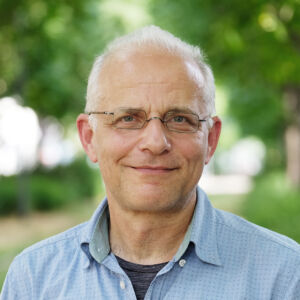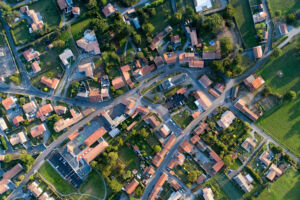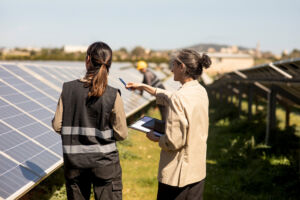The energy efficiency improvement and decarbonization of the building sector is an important lever on the path to climate neutrality. Municipalities face the challenge of planning and further developing efficient heat utilization and supply. However, the heating sector is characterized by highly fragmented ownership structures and responsibilities. The KWAPE research network is investigating how local authorities can use municipal heat planning (KWP) to activate owner-occupiers of single-family and two-family houses for the local heat transition. Among other things, the project is surveying their perceptions and assessments of renovation potential. The project is also exploring ways for owners to participate in the implementation of sustainable heating solutions using different workshop formats in two municipalities.
Research approach
Municipalities play a key role in shaping the heat transition. Municipal heat planning provides them with a tool to coordinate the urgently needed implementation of the heat transition at the municipal level. The feasibility of KWP depends on the renovation activities of building owners. Owner-occupiers of single-family and two-family houses (EZFH) represent the largest group in terms of numbers. However, they face numerous obstacles when it comes to energy-efficient renovation. With KWP, municipal administrations can develop scenarios and solution options for sustainable heat supply in the various sub-areas of their municipality. This offers an opportunity to involve these important actors more closely.
The transdisciplinary research project KWAPE (together in cooperation with the cities of Elmshorn and Tübingen) investigate which implementation strategies within the framework of the KWP are suitable for residential areas. One focus of the project is the question of which strategies the KWP has in store for EZFH neighborhoods and what contribution collaborative solutions can make to the implementation of heat planning. Organizational, technical, and social innovations, such as semi-centralized heat supply systems or serial renovations across buildings, will be considered. In addition, it examines which offers municipalities can use to strengthen the participation of owner-occupiers of single-family homes in the planning and implementation of renovation strategies within the framework of the KWP.
The subproject “Process support and activation of single-family home owners” at ISOE primarily focuses on the perceptions, knowledge, and assessments of the owners themselves. The KWP creates a basis of information about options for future energy supply in the neighborhood and at the same time causes renovation obligations under the Building Energy Act (GEG). When renovating heating systems, homeowners must install systems that predominantly use renewable energies. In order to better understand the motives, obstacles, needs, and attitudes toward the implementation of sustainable heating solutions and energy-efficient renovation for their own properties, the subproject conducts both qualitative interviews and a quantitative survey with owner-occupiers of single-family homes. Secondly, the potential for greater participation and local integration of single-family home owners in the heating transition will be examined in two municipalities. An inventory of the implementation of the KWP in Elmshorn and Tübingen, as well as best practice analyses, provide an important starting point for process support in the two practice municipalities.
Background
A significant proportion of greenhouse gas emissions in Germany are attributable to the building sector. Single-family and two-family houses (EZFH) account for the majority of buildings in Germany. Due to their structural design and low energy efficiency, this type of building has an above-average share of emissions. The development of solutions and implementation options for faster decarbonization of EZFHs is therefore an important step towards the heat transition and achieving a climate-neutral energy supply. The subproject “Process support and activation of EZFH owners” at ISOE contributes to an improved understanding of the situation of owner-occupiers and their needs, motives, and attitudes. This generates important insights into how municipalities can address and activate this target group in a more targeted manner within the framework of KWP.
Research and project partners
- Institute for Social-Ecological Research (ISOE) (lead)
- Institute for Ecological Economy Research (IÖW)
- German Institute of Urban Affairs (Difu)
Practical partners
- Municipality of Elmshorn
- Municipality of Tübingen
Funding
The KWAPE project – Municipal Heat Planning for Activating Private Owners – is funded by the Federal Ministry for Economic Affairs and Energy – Call for Proposals: Energy Transition and Society.
Contact:


